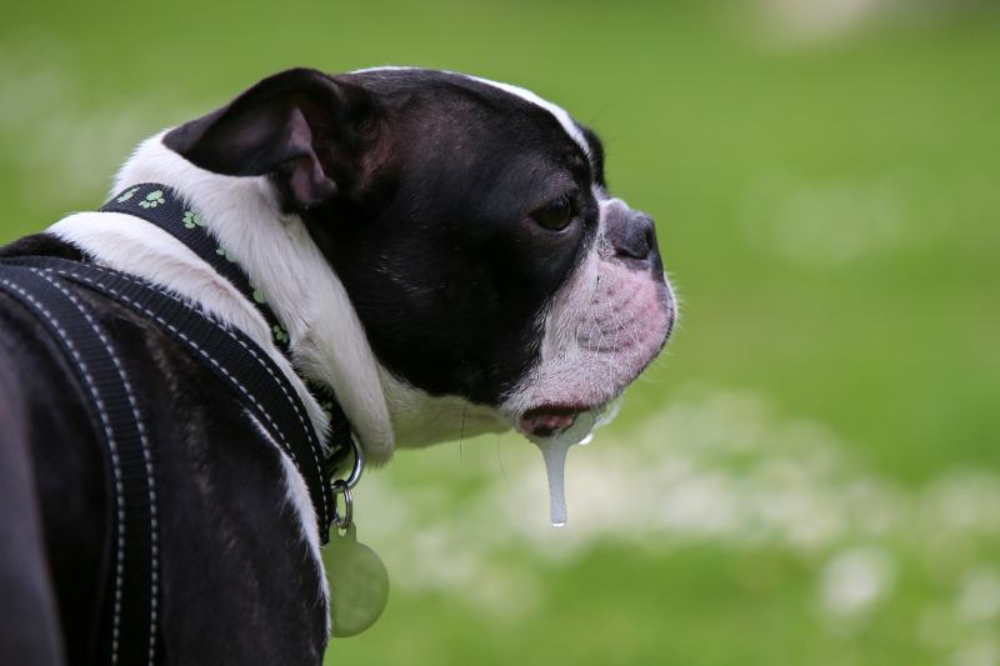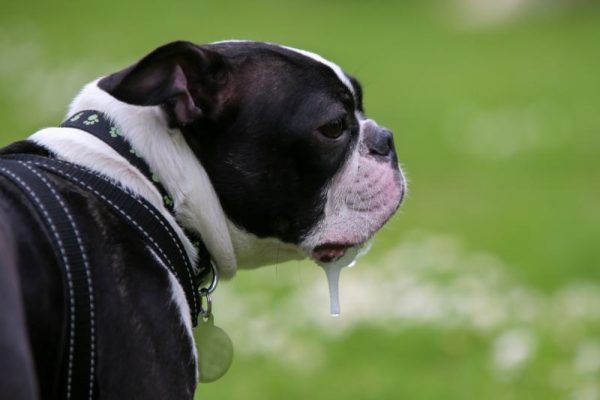Dogs may be man’s best friend, but their slobber definitely isn’t! Slobber is simply a part of life when it comes to living with a canine, and it’s usually not something one should worry about. Mostly, it’s just a part of your dog that’s a little gross but fairly easy to overlook.
Have you ever wondered why dogs slobber, though? Or perhaps your pup is particularly slobbery, and it seems like there’s too much drool, so you wonder if it’s normal or something is wrong. It turns out there are a few reasons dogs slobber, and some of those reasons can cause your canine pal to slobber more than usual. Here’s everything you ever wanted to know about dog slobber!

The 7 Reasons Dogs Slobber
Dogs can slobber for various reasons, some of which are cause for concern and others not.
1. Breed
While all dogs slobber to some extent, certain breeds are more slobbery than most. You’re probably familiar with some of these drooly breeds, as they include Saint Bernards, Great Danes, Newfoundlands, Boxers, Basset Hounds, Mastiffs, English Bulldogs, Great Pyrenees, and Bloodhounds. Being extra slobbery is perfectly normal for these dogs; in fact, they really can’t help it. These breeds’ heads and lips aren’t made to retain all the slobber they produce, and they tend to have extra skin around their mouth. That extra skin collects all their drool, which then drips down or flies around when the dog shakes their ears out.
Keeping a slobber rag or some sort of pet wipes on hand will help immensely. This way, you can wipe away the drool as soon as you see it, keeping your dog (and home) much cleaner!
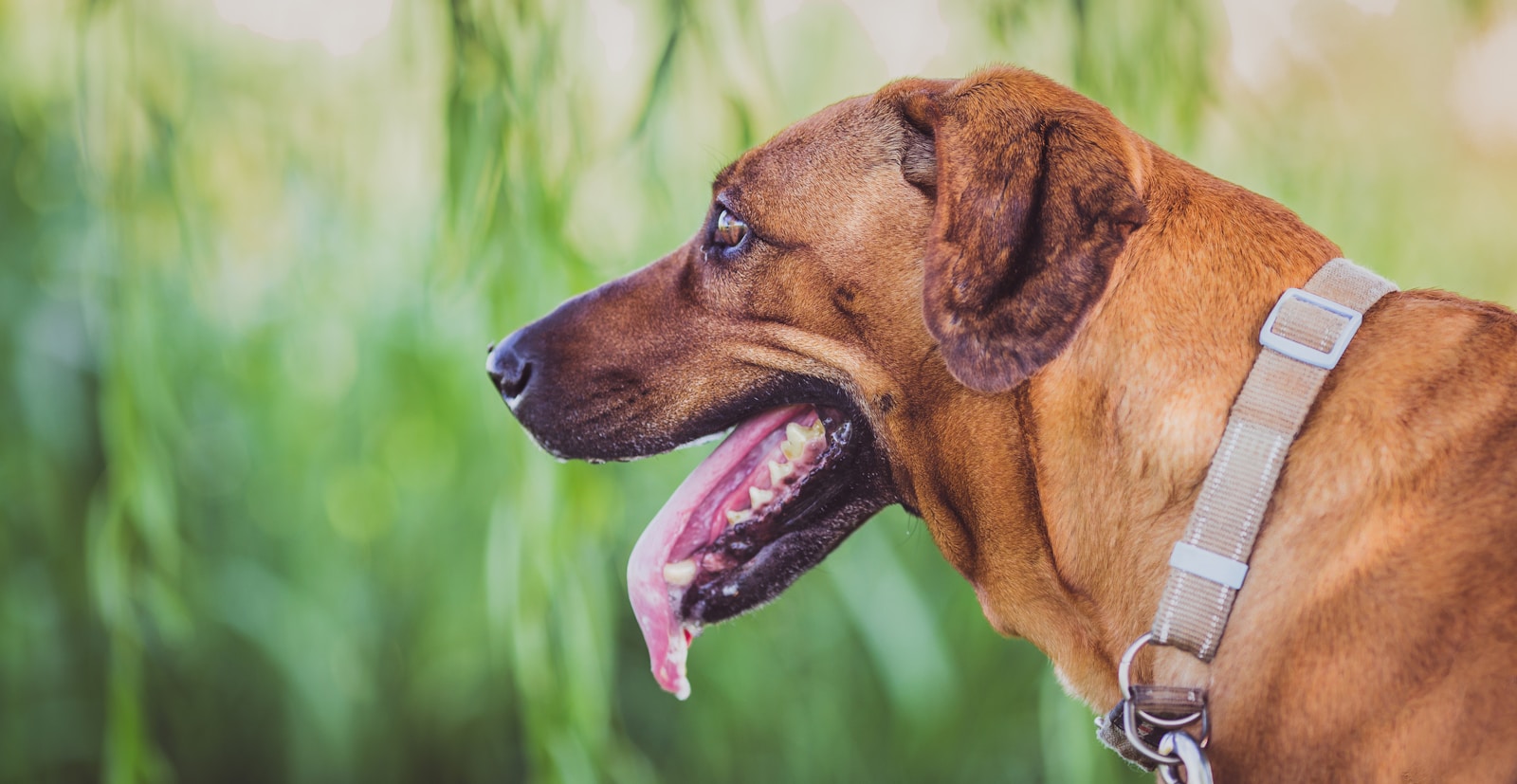
2. Excitement
Sometimes, our canine friends will just drool in excitement. They could be excited about seeing you after you’ve been away at work and give you extra slobbery kisses, or they could be excited because they think they’ll be getting a treat soon. Really, anything a dog could possibly be excited about could cause them to slobber when they don’t typically do so.
3. Delicious/Not Delicious
Think about how your mouth waters when something particularly delicious gets set down before you. The same thing happens to your pup when they contemplate getting an extra tasty and exciting treat, like a bite of steak.
However, the same thing can occur if your pup tastes something that is the opposite of delicious, such as medicine. So, things that taste exceptionally good and exceptionally bad can make your dog’s mouth water, causing them to slobber.
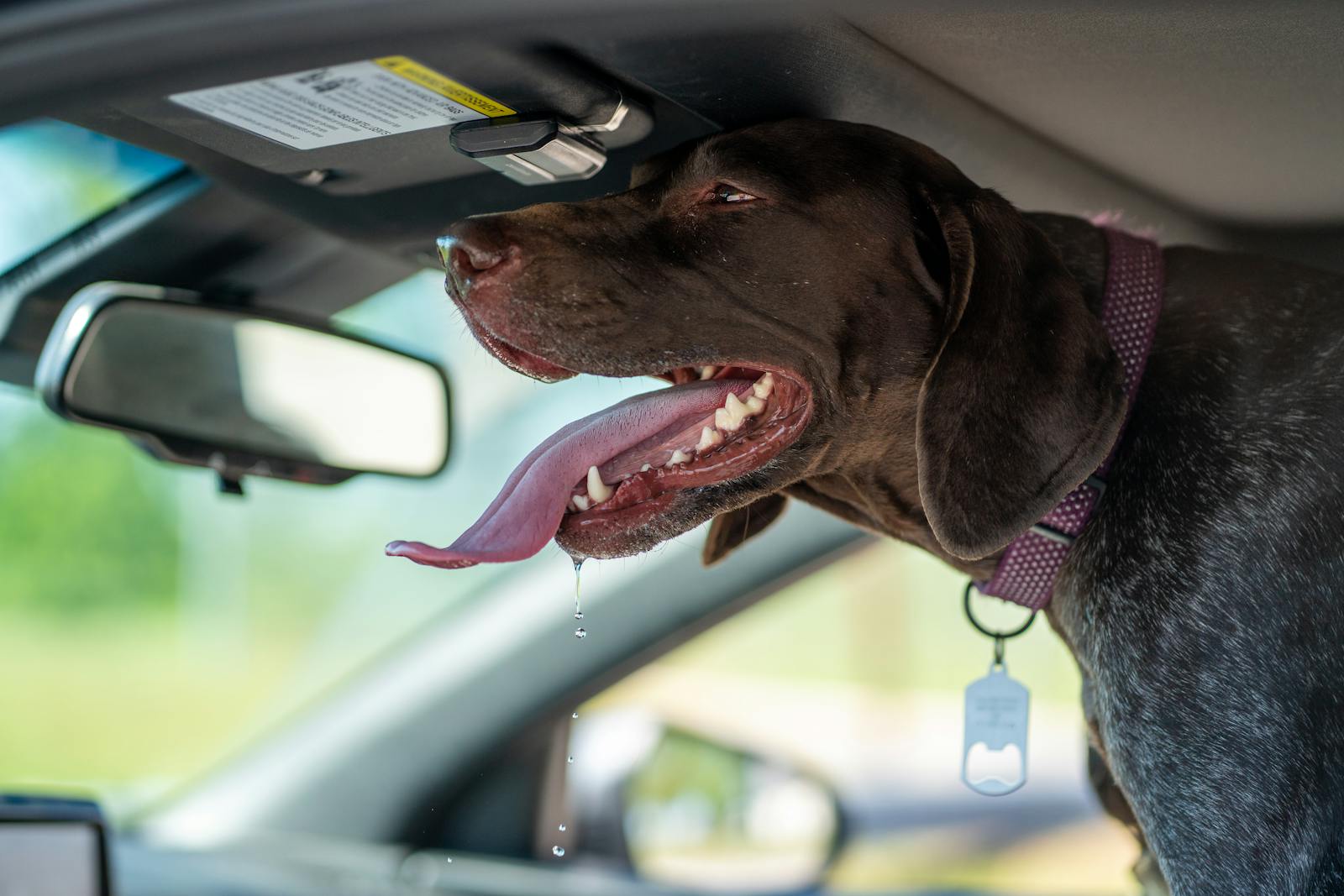
4. Anxiety
Canines can experience anxiety, much in the way we do, and an overly anxious pup might start slobbering everywhere. They may also begin licking themselves or other things excessively, yawning often, panting a lot, or shaking. If you think your dog is suffering from anxiety, you can try to figure out what it is that’s making them anxious, then remove that stressor. However, if that doesn’t work or you can’t decipher what is making them anxious, have a chat with your vet about further steps to take.
5. Issues With the Mouth & Throat
Several issues with the mouth and throat could result in your dog becoming super slobbery.
One such thing is anything that could keep your pup from swallowing as they normally would. Issues that could prevent a canine from swallowing could be anything from a fractured tooth to tumors or oral growths in the throat, mouth, or esophagus.
Something caught in your dog’s teeth or stuck in the throat, like a piece of a bone or toy they were chewing on, could cause extra drooling (and pose a serious risk to your pet).
You can help prevent dental issues by brushing your dog’s teeth regularly and having your vet check their dental health each year. Watch out for early signs of problems—red, irritated gums or plaque—as this indicates your dog needs a dental cleaning. Also, keep an eye on your pup’s mouth to ensure no lumps or growths have appeared; if you see something like this, see your vet immediately!
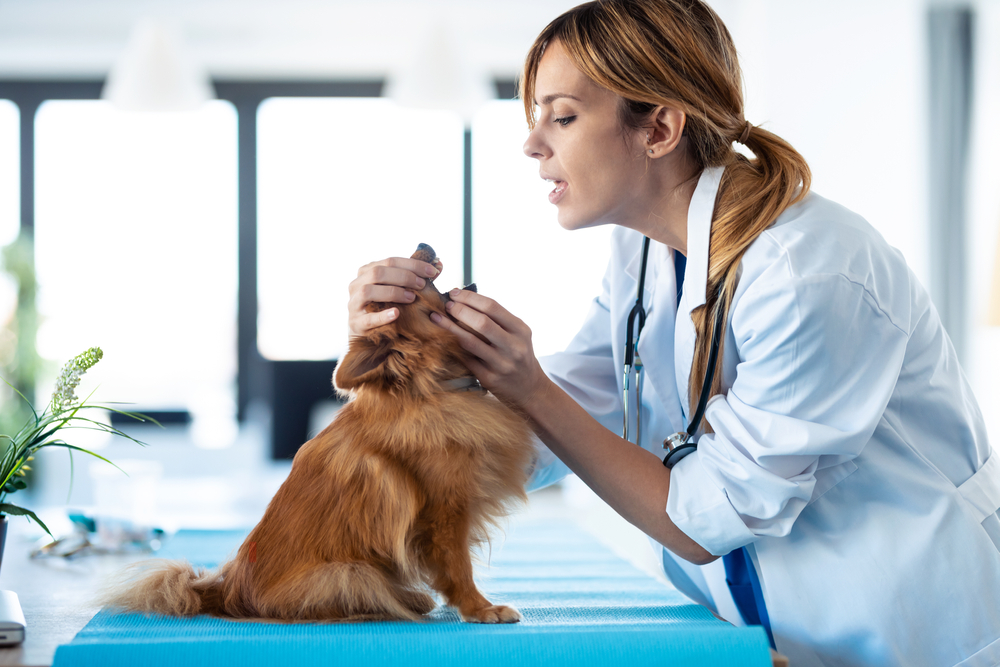
6. Upset Stomach
Anything that causes stomach upset in your pup could lead to slobbering. Motion sickness, in particular, is a significant cause of nausea in canines, so if you see your dog drooling a lot while in the car, this is probably why. In the case of motion sickness, a dog should stop drooling once they’ve stopped being in motion, but you can also help your dog out on car rides by asking your vet about medication for nausea.
Your dog could also get an upset stomach because they ate something they shouldn’t have, like a bug or something they found off the ground, which could cause drooling. Your pup might eat something toxic, leading to lots of drooling, lethargy, shaking, and vomiting. Be aware of any possible toxic dangers in your home or yard, like plants or chemicals, and remove them if possible. If you believe your dog has ingested anything toxic, get them to the vet as soon as possible.
7. Illness
Plenty of other illnesses or health conditions can also result in your dog becoming slobbery. For example, heat stroke makes your dog pant a lot, which can lead to extra drooling. Seizures may result in a dog drooling afterward. Even sinus infections or neuromuscular conditions such as palsy can cause a dog to slobber. Plus, rabies and liver or kidney disease can have slobbering as a symptom.
If your pup is suffering from an illness or health problem, though, they should be showing other signs, like changes in appetite, difficulty standing, saliva that smells bad, blood in the saliva, or throwing up. It simply depends on what exactly is wrong with them. So, pay attention when your dog gets slobbery to determine if anything serious could be causing it.
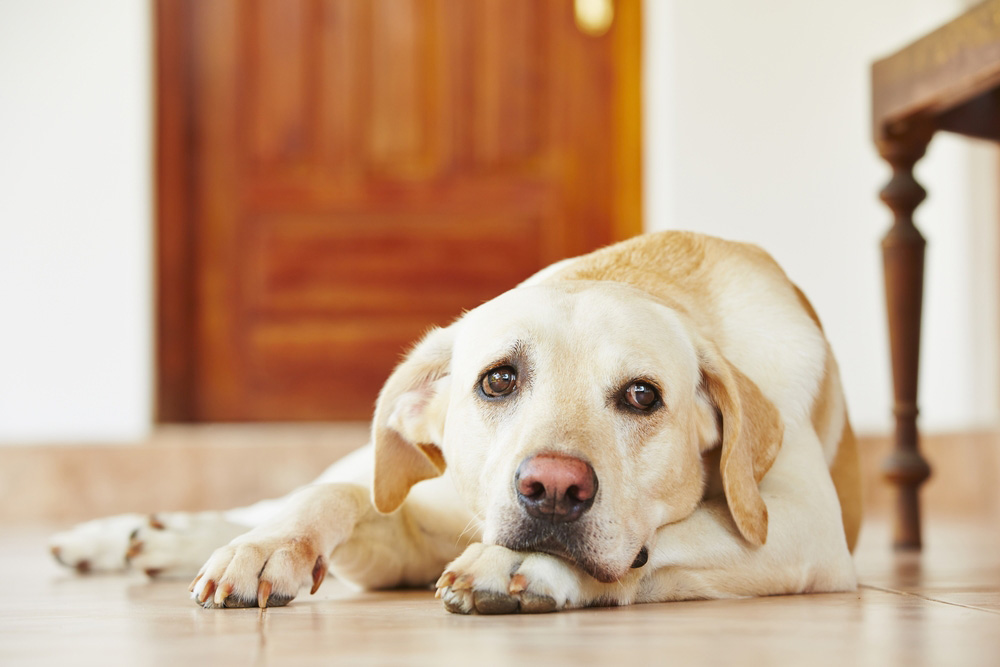
Can I Reduce How Much My Dog Slobbers?
Not really, no. If your dog has gotten slobbery because of an underlying condition, like dental health problems, illness, or anxiety, once the underlying cause has been addressed, the excessive drooling should clear up. But if your pup is simply a slobberer because of their breed or by nature, you can’t really change that. What you can do is tie a bandana around their neck to help catch their drool and keep a drool rag or pet wipes handy to wipe their faces often.

Final Thoughts
Dogs can slobber for many reasons, and much of the time, it’s perfectly normal (particularly if they’re a slobbery breed). However, there are some instances where canines will start drooling excessively because of health issues or problems with the mouth. In those cases, you should see other signs indicating something more serious is happening with your pet. If you suspect your dog has a health issue causing them to slobber a lot, talk with your vet sooner rather than later.
Featured Image Credit: Sue Thatcher, Shutterstock

